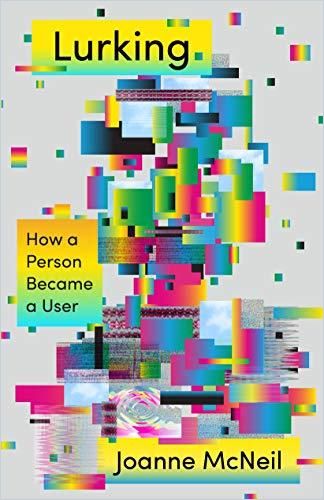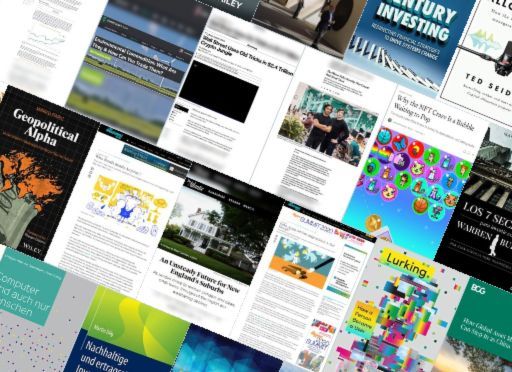Award-winning writer and editor Joanne McNeil examines the internet through the prism of valuing – not monetizing – the human experience.

Not a Safe Place
With unflinching honesty and deep consideration for the internet’s paradoxes, Joanne McNeil views the history of the online user through various lenses. She reflects on how people engage with the internet and how the internet shapes the user – who, in turn, shapes the online universe. McNeil expresses disappointment at how companies like Facebook exploit users. She argues that “priceless experience” should be acknowledged for its true value, not broken down, monetized and sold back to users in a degraded form. In McNeil’s opinion, an ideal internet would be a civic body that values justice and human rights.
McNeil’s ease with the myriad paradoxes of the internet led Esquire to put this on its Best Books to Elevate Your Reading List in 2020; OneZero chose it as the Best Tech Book of 2020 and End of the World Review added it to its 100 Notable Books of 2020. McNeil was the initial recipient of the Carl & Marilynn Thoma Art Foundation’s Arts Writing Award. She was a resident at Eyebeam, a Logan Nonfiction Program fellow and an instructor at the School for Poetic Computation.
Renowned novelist Jonathan Lethem wrote, “Joanne McNeil writes as an internet ‘supertaster,’ a veteran of more platforms and forums and flame wars and start-ups than most of us could ever imagine.”
Other works that examine the internet – though perhaps not with McNeil’s personal courage or her willingness to include her own emotions as part of the narrative – include The Ethical Algorithm by Michael Kearns, The Known Citizen by Sarah E. Igo and Irresistible by Adam Alter.
In the internet’s early days, McNeil asserts, users could wander more than seek. Back then, she explains, Google competed with other search engines such as Excite, HotBot, Lycos and Yahoo. But Google, the author underscores, didn’t organize information into portals such as art or sports. Google monitored user habits and based searches on the number of user hits.
Search for something (knowledge, addresses, answers, acceptance, belonging, entertainment, labor, love, whatever) drives the internet.Joanne McNeil
McNeil wants readers to understand that search engines offer educated guesses, not truths. Google, she notes, doesn’t offer customer service. If you have a question about Google, you must google it. McNeil regrets that Google has extraordinary influence while not being accountable to anyone.
Anonymity
Anonymity, McNeil proposes, is not the same as privacy. Anonymity is being in public unnoticed. Privacy means protecting yourself from intrusion.
By the 2000s, McNeil agrees, users broke down anonymity by fostering a more voyeuristic online model. They invited other users into their private lives. People believe they can lurk anonymously, but McNeil stresses that the internet surveils everyone all the time.
Social Media
Blogs were popular in the early 2000s, with many contributors using Blogspot and Movable Type. However, the author reports, blogs did not adhere to journalistic rules. They could aggregate information from other sites through links, and usually, she reminds readers, that lent the bloggers’ opinions authenticity. Though eight million bloggers were writing by 2005, blogging failed to become an art form, and McNeil asserts, it lost its cultural currency as Facebook, Twitter and Instagram became the new online communities.
Pre-iPhone, McNeil characterizes the stereotypical internet user as anonymous, sedentary and alone. Once the iPhone took over, she says everything changed. The selfie appeared and showing yourself became the most important self-expression. McNeil points to the smartphone as the agent of destruction of the border between lived life and online life. With an iPhone, McNeil asserts, no one is ever alone.
Twitter and Instagram normalized what McNeil calls lurking. Users gained followers, not friends. Life became only about clicks, McNeil offers.
Conflict Monetized
McNeil finds hope in how social justice groups such as #BlackLivesMatter and #MeToo used Twitter to illuminate abuses of power and contribute to a shift in attitudes about sexual misconduct and police use of force.
McNeil excoriates Facebook for showing you only more of what you already see and for not banning, for example, law enforcement from making fake profiles to infiltrate Black Lives Matter.
Lurking is listening and witnessing on the internet, rather than opining and capturing the attention of others.Joanne McNeil
McNeil makes a crucial point when she posits that the internet did with outrage what it does with attention-seekers: monetized it. She reminds readers that when platforms “incentivize conflict,” they encourage hate.
Safe Space
McNeil regards Wikipedia as a unicorn – a community-driven platform that volunteers curate and monitor. She admires that it owes nothing to advertisers, has no covert agenda, and is neither a chat room nor a bunch of links. People trust it.
A better internet could accommodate us all like a public park: a space for all, a benefit to everyone; a space one can enter or leave, and leave without a trace.Joanne McNeil
McNeil laments that Google and Facebook control almost 70% of internet traffic. A perfect internet, she argues, would feature users who contribute time and energy to maintain it as a safe space, with moderators who hold bad actors accountable. Can users make the internet better, she asks? Her conclusion: Users need users, as people need people.
The Almost Impossible
McNeil does the almost impossible; she writes with originality about the internet – about the air you breathe and the water you swim through daily. She proves the surprising point that the best route to new insights about the internet is not to step back from it, but to accept her own immersion in it and to write from the heart of the maelstrom. Though she has a stern social conscience – and writes from an activist stance – McNeil is never humorless or preachy. She wants readers to understand how thoroughly the internet has captured their lives and emotions and to find a way to live apart from it – in the real world, not online.





